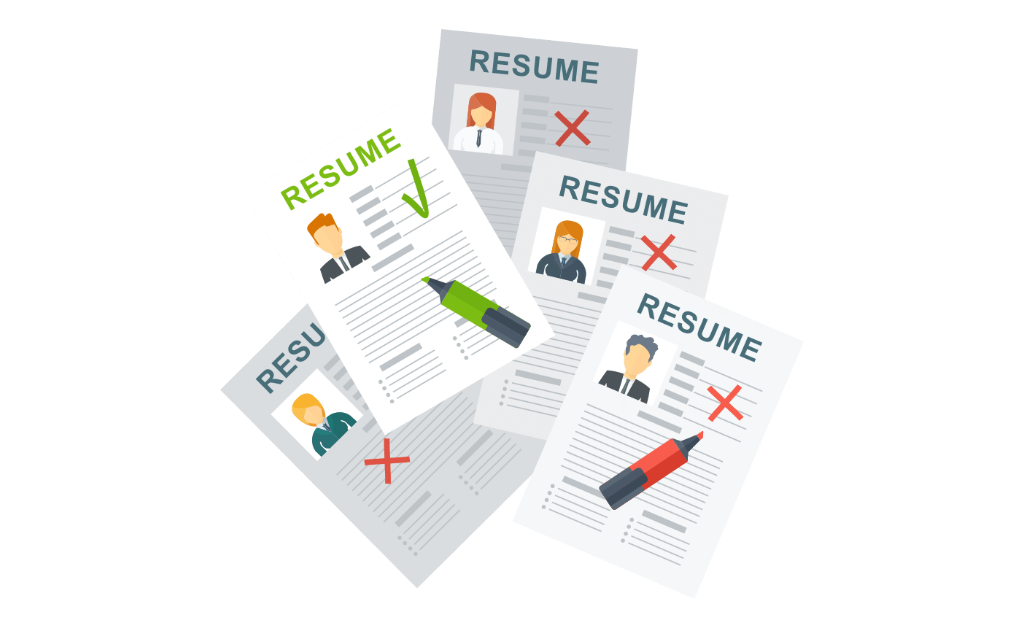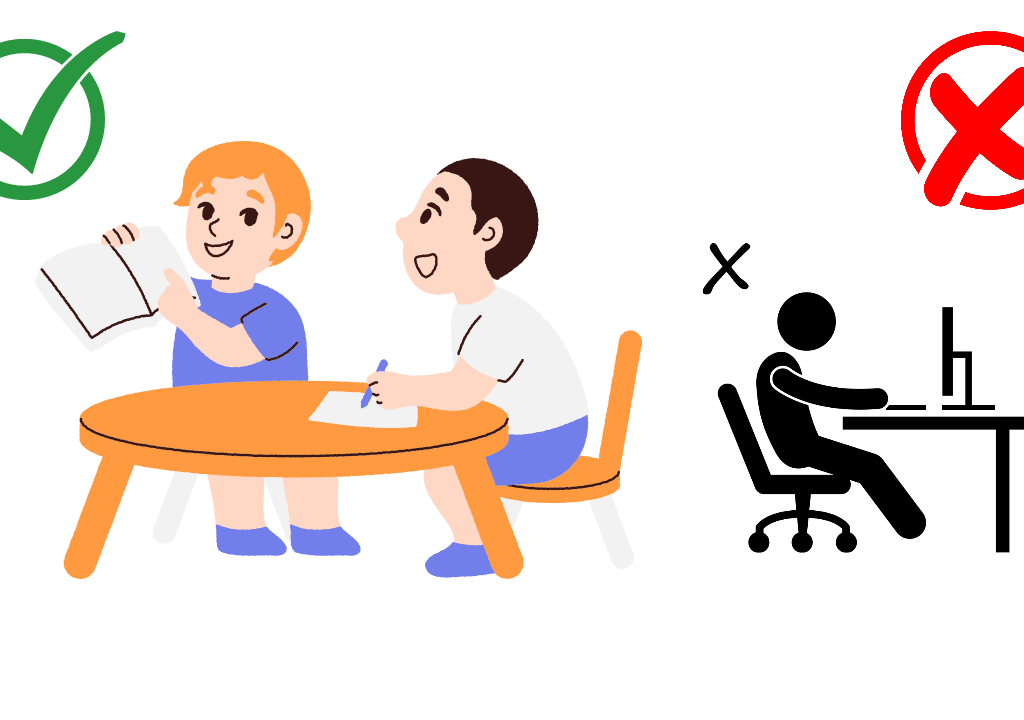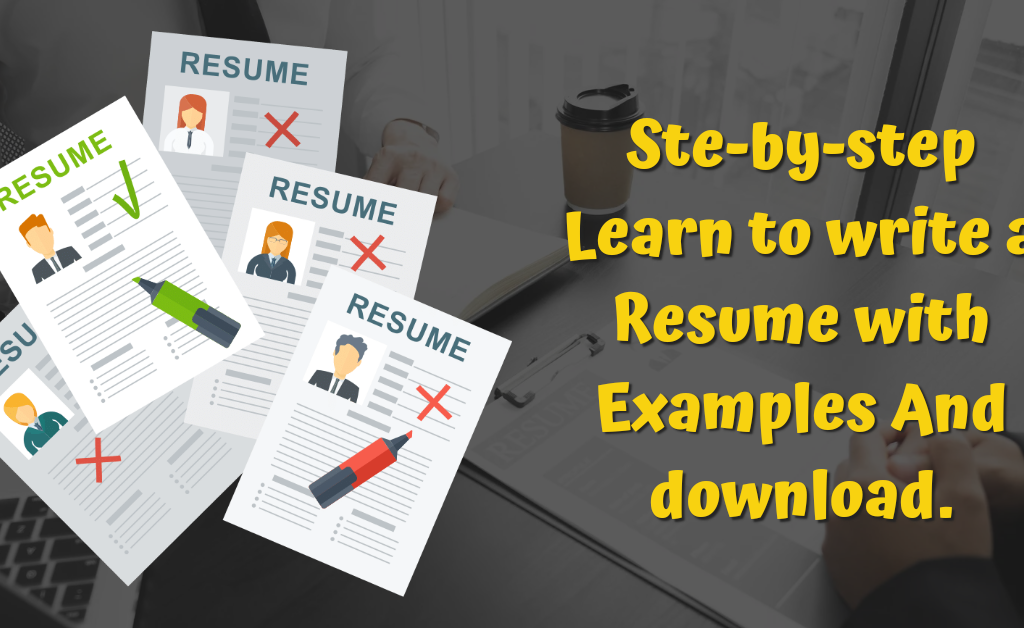Yes, you have the opportunity an internship as a student to get an internship.
It’s time to get ready for the big day now. Although your first day of work may seem scary and stressful, you are not alone. Here are some crucial ideas to enable you to get issues working in the proper direction and leave a lasting impression that matters. Take this opportunity for an internship as a student.
For any reason, preparing for your future profession with an internship could be the best option. Here is a starting point.
Why should you choose an internship?
Purpose
The aim of this study was to investigate the perspectives of internship supervisors as well as the experiences of student interns.
Design/technique/approach
The study’s inductive qualitative approach was based on a naturalistic paradigm and driven by theories of learning and socialization in order to analyze internships as a complex social phenomenon in the workplace. The researchers conducted semi-structured interviews with internship directors and student interns at several companies.
Findings
As a result of their internships, students said they learned different things about how businesses operate and how to collaborate with others in a professional setting. It is challenging to transfer abilities from one environment to another because, according to experts, students do not look for links between the classroom and the workplace. Before managing interns, supervisors got very little, if any, training. They didn’t know how much work interns could take and believed it was their responsibility to make sure they had a great experience. Additionally, the objectives of companies and educational institutions for internships were not always the same.
Practical implications
Prior to the start of an internship, both students and supervisors might benefit from more formal instruction or training. Coordination of student experiences to promote learning and positive results and collaboration between educational institutions and businesses would both be advantageous.
Originality/value
The focus of this essay is on the value of fostering working relationships and assisting students in understanding the nature of employment.
Here are some of the other advantages of doing an internship as a student :
-
Hands-on experience – You’ll learn some excellent basic abilities that will be helpful wherever you wind up in the future.
-
A taste of a potential career path – Consider your internship as a unique chance to explore working in a field you believe you would enjoy. None of this is contingent upon signing a protracted employment agreement.
-
Effective connections– You’re guaranteed to meet lots of new people who could come in useful when you’re applying for jobs in the future. You might find someone to become your mentor. Or, you could get a shining reference out of it.
-
Experience for your CV – Even if your degree and grades are very important, companies like to see that you have actual work experience. On your CV, you could list the exact projects and accomplishments you worked on during your internship.
-
A foot in the door of a company or industry – Internships can help you land your dream job in some competitive industries, particularly the media and creative sectors. Even if you don’t receive a job offer, the company will likely remember you the next time you apply.
-
Employer assurance – Try to treat your time at the office like a real job by becoming accustomed to its practices while your time there. Your confidence will soar as a result when you finally enter the workforce. For some great advice, see our article on how to behave at your first job. Here are a few advantages of an internship:
-
Practical experience – You’ll learn some excellent basic abilities that will be helpful wherever you wind up in the future.
Other
-
Effective connections – There is no doubt that you will make a lot of new friends who may be helpful to you in the future when you apply for jobs. You might come across a potential mentor. Or you could use it as a stellar example.
-
Experience for your CV – While your education and test scores are very significant, employers also like to see that you have real-world work experience. On your CV, you could list the exact projects and accomplishments you worked on during your internship.
-
A foot in the door of a business or sector – Internships can help you land your dream career in some competitive fields, particularly the media and creative industries. Even if you don’t wind up with a job offer, you’ll probably be remembered when you next apply there.
-
Workplace personality – Spend time getting to know the office culture and attempt to treat your position like a real job. Your confidence will soar as a result when you finally enter the workforce. For some great advice, see our article on how to behave at your first job. My career began with a paid summer internship, which ultimately resulted in a full-time position with the company.
The opportunity to dive headfirst into something new and absorb knowledge from others around you is provided by an internship, but you must ensure that you are being paid for your efforts.
Jess Murray, former Editor at Save the Student
Know Where to Look for an internship as a student
It’s time to look around after you have a clearer notion of which internships may be a good fit. Here’s how to go about it.
Search Worksite: With millions of job ads on websites like Glassdoor, you’re sure to find something that’s ideal for you. You can look up internship titles that interest you and filter the results by region, size, industry, company reviews, and other factors. Set up a job alert to receive pertinent results in your inbox.
Consider the Career Opportunities at Your Institution: Nearly all institutions offer a career website where companies looking to hire their students can advertise openings. Additionally, career and internship fairs can be quite helpful because they provide you with the chance to meet hiring managers in person.
Boost Your Connectivity: Asking friends, family, coworkers, classmates, instructors, and alumni whether they know of any hiring opportunities can be quite helpful in your search for an internship. Investigate the businesses you are interested in, then contact their staff for an enlightening interview. You never know what possibilities it may present!
Touching Companies Directly: If there aren’t any appropriate internships available at your favorite company, you can always try sending them a letter of interest in the hopes that they would get in touch with you when one becomes available or perhaps establish a new internship just for you. Compared to applying directly, it’s more of a long shot, but you’ll never know if you don’t try.
The best websites to find an internship as a student
-
-
-
-
-
-
-
-
-
-
-
-
-
-
LinkedIn – You’ll often find internships listed here. To be the first to learn about new opportunities, be sure to follow any businesses you are interested in.
Take Your Skills Into Account
One of the biggest misunderstandings regarding how to acquire an internship that students have is that they need to apply to every position that interests them in order to boost their chances. However, this is a surefire way to get recruiters and hiring managers to go silent. Instead, consider the roles that would be a suitable fit for you based on the knowledge and expertise you now have. Here are some tips for determining whether internships are best for you:
-
Consider your degree: Look for the most typical job descriptions and career fields for persons with your major.
-
Think about your experience: Consider the jobs for which your prior work experience may have prepared you. While a student who coaches statistics students might want to look into data science internships, a student who works at the college newspaper could want to think about journalism internships.
-
Identify applicable talents: Time management, organization, and critical thinking are all skills that are valued in the workplace and will also enable you to succeed in your studies or in the student organizations you are engaged in. Which jobs need these talents should be easy to find out with some simple investigation.
-
Investigate your interests: You want to be sure you enjoy your job given how much time you spend there. List a few professions that appeal to you, then look for internships in those disciplines.
-
Initiate decently: Never feel obligated to secure your ideal internship right away, especially if you have never had a job before. To strengthen your résumé, start by looking into tiny local organizations, clubs connected to your school, or volunteer work.
When should you apply for internships?
Finding the right internship to apply for at the right time after deciding you want to do an internship is the next step. We spoke with Julie Brewer, a career specialist at the Moody College of Communication Career Center at The University of Texas at Austin, to discuss things to think about when you’ve decided to apply for an internship, application advice, and typical deadlines to keep in mind.
Put your resume online at Indeed. When you build an Indeed Resume, let companies find you.
Fall internship application timeline: internship as a student
Recruiting period for competitive internships: March-August
Recruiting period for many employers: July-August
Internship duration: September-Early December
Average length and hours:10-15 weeks or the duration of the Fall semester; 10-20 hours/wk part-time
Spring internship application timeline
Recruiting period for competitive internships: August-November
Recruiting period for many employers: November-January
Internship duration: Mid-January-May
Average length and hours:10-15 weeks or the duration of the Spring semester; 10-20 hours/wk part-time
Dates for summer internship applications
Recruiting period for competitive internships: September-December
Recruiting period for many employers: February-April
Internship duration: June-August
Average length and hours:10-12 weeks; 20 hours for PT, 40 hours for
The deadlines are the biggest issue that throws students off while applying for internships. Deadlines for the most sought-after internships at prestigious companies might start as early as the fall for the next summer’s internships.
It’s advisable to start looking for internships throughout the summer when you have more free time and to polish your resume. In this manner, you can submit applications as soon as openings in the late summer and early autumn begin to go live.
Our recommendation if you’re looking for a post-graduation internship is to start looking as soon as you can and stay looking all year long. Keep an eye out because internships at start-ups and smaller businesses may become available at any time.
Choosing an internship
What type of internship you apply for and when to start applying may depend on a variety of academic and personal variables. As a best practice, begin looking into internships at least three to six months before the start date you expect, to provide time for research, applications, interviews, and offer reviews. Be sure to educate yourself with the application deadlines, materials needed, and application dates for academic credit as they can vary by industry and college.
Before you start applying for internship as a student, take into account the following:
Large vs. small companies
Making the choice of where to apply for internships might be challenging for some students. It can be very different to intern at a big corporation vs a tiny start-up. Brewer claims:
“A startup internship is considerably different from one at a huge corporation. You’ll receive more advice at a large corporation, but you’ll be working on a smaller portion of the pie in a much more narrowly defined area. You might have a wider perspective and work on more aspects of the business at a start-up. Because what might appear to be lesser efforts might have a big influence on a tiny company, you might have more measurable results.
Paid vs. unpaid internships
Depending on the company, internships may or may not be compensated. Additionally, pay may differ according to the sector, region, or amount of expertise. Paid internships typically attract more applicants and have earlier application deadlines than unpaid internships.
When determining whether to pursue or accept an unpaid internship, there are several things to take into account, including your financial obligations, the number of hours per week needed, and the importance of the experience. Gaining experience in your subject of study or possible job path is the main reason to take part in an internship. The experience can still be just as beneficial for your professional development even though an unpaid internship may not have a financial advantage.
When deciding whether to submit an application internship as a student.
You don’t have to be paid as an intern if:
-
Your internship counts toward a university course.
-
The placement is for school work experience, thus because you are often under 16 years old, you are not eligible for minimum wage.
-
You’re giving your time to a good cause or charity. You should set your own hours and make arrangements around your other responsibilities because there shouldn’t be any duties attached to this.
-
Your job is comparable to job shadowing or work experience. When you are not there to provide work or offer a service, you are there to observe what is happening.
Technically, you shouldn’t have defined working hours if you aren’t being paid for your internship, and you should be considerably more flexible about when you show up. If the firm is upset about this, the simple remedy is for them to pay up!
Paid internships typically demand greater effort and accountability. They may therefore be a little more intense. It’s crucial that you don’t allow any employer to abuse their power as a result.
Tips for a Successful Application
Follow these strategies for a successful application process:
-
Be organized – by keeping track of the due dates for your college and the businesses where you want to intern. Setting calendar reminders to follow up on applications may also be a good idea.
-
Apply to many roles- You should be sure to apply for multiple positions because you can’t always expect to land the internship of your dreams.
-
Pay close attention to the little things- You must decide where you will live and how you will pay for accommodation, for example, if you are interning over the summer somewhere other than your home or college. Consider your financial situation as well, especially if you are looking for internships that are unpaid.
-
Create a professional cover letter and résumé- Both documents should be customized for the specific function. Here is an example of a college resume, some writing advice, and a sample cover letter for an internship.
-
Observe the application’s guidelines- You can be asked to provide references, provide samples of your work, or respond to inquiries. Follow the instructions exactly. Hiring managers may ignore your application if you don’t pay heed to the instructions.
Interview Like a Professional
People frequently find that the step in the job hunt they dread the most is the interview. However, it won’t be nearly as daunting if you thoroughly prepare. Make sure to research the company before your interview so you know what services and products they provide, who leads the organization, what recent milestones they’ve achieved, who their rivals are, etc. Any of these questions may be asked during an interview, and not having an answer will indicate that you haven’t done your research.
Additionally, you can utilize this knowledge to generate a couple of your own questions. It will demonstrate your love, curiosity, and knowledge of the company if you ask the interviewer specific questions about it.
Additionally, you should research typical interview questions in advance. In order to understand what actual recruiters are asking candidates just like you, you can consult Glassdoor’s list of the 50 Most Common Interview Questions and check interview evaluations for your job title and firm on Glassdoor. Once you’ve determined which questions are most likely to be asked, practice answering them out loud with a friend.
The following advice can be used to respond to almost every interview question:
-
Get specific: Nothing irritates interviewers more than an evasive or unclear response, so while answering a question, be sure to include concrete concepts, illustrations, and stories.
-
Think positive: Always be upbeat and positive. Nobody wants to hire a candidate who makes it obvious that this internship wasn’t their top choice.
-
Ask for time if necessary: Sometimes you simply lose all memory when answering a challenging interview question. That’s okay; we all experience life’s ups and downs. Say, “That’s an excellent question, let me think about it for a minute,” and take a few seconds to collect your thoughts rather than racing through a half-baked response.
-
Be honest: Students often concentrate on what employers want to hear, but if you simply say what you feel like you should, you run the risk of coming off as forced and might even secure an internship that isn’t a good fit for your internship as a student.
Advice for your first internship as a student
Here is how to make the most of your internship as a student:
Keep yourself informed on the most recent company news and events.
Beforehand, do some research on the business, recent news, workers, and workplace culture. Start by looking through their social media pages, or just perform a web search for the business. Being informed gives you common conversation starters with your coworkers and makes you appear more engaged and up-to-date.
Be prepared both physically and mentally.
Don’t wait till the next day! Make sure you have everything you’ll need for your first day by packing your backpack the night before. Getting a good night’s sleep and waking up feeling rested will help you stay energized. Do some mental visualization of yourself finishing a successful day at work if you feel unduly worried or thrilled. Treat yourself to a healthy meal before work to keep your body fueled.
Be on time
When planning your route to work, allow additional time for morning rush hour traffic. As a general guideline, aim to arrive 10 to 15 minutes early; this shows professionalism and gives you time to settle down. So that you are comfortable with the route and have a decent understanding of the commute duration, you can even practice your commute before the first day.
Smile and present your best outfit
Observe the dress code if one is specified. Otherwise, make sure to discuss it before with your recruiter. Spend some time shopping for at least two to three appropriate clothing for your internship, and always choose ones that you feel confident and at ease wearing. Remember that your best accessory is your smile, not your clothes!
Ask questions
It’s perfectly acceptable to ask questions on your first day of work because no one expects you to know everything. It’s also the best and fastest way to learn. Ask your peers and mentors for guidance if you’re unsure of something. Your ability to think critically, your curiosity about new things and your social skills are all demonstrated.
Take notes
You’re probably going to overwhelm with knowledge, so always have a pen and a notebook with you. Making notes & talks will help you organize your ideas and guarantee that you don’t miss any important information. Additionally, it demonstrates to your superiors that you value your task motivate to complete it well. Avoid taking notes on your phone even though it is convenient because it assumes that you are texting.
Network, network, and network!
Start a conversation with as many staff members as you can on the first day of your internship. Introduce yourself to a new person from a different department or start a conversation with your coworkers. The variety of people you can interact with and learn from within the company will astound you. Once your internship is over, try to stay in touch with the people you met.
Maintain a positive outlook
Maintain an optimistic outlook throughout your internship. You may occasionally discover the profession which best fits you. Even if this is the situation, look for ways to gain valuable skills throughout the internship.
Set SMART goals
You can expect to meet a set of objectives during your internship by your college or your internship supervisor. To make sure you are making the most of your internship, take the time to establish your own SMART (Specific, Measurable, Achievable, Relevant, and Time-bound) goals
In conclusion, my internship as a student
.
Ask for feedback
At the halfway point through your internship again at the end, ask your supervisor and coworkers for feedback. Before accepting your full-time work, look for constructive feedback and methods you can keep refining and expanding your skill set.
Take proper notes
Keep a journal of your responsibilities, noteworthy skills or qualities you look for in colleagues, and your impressions of the internship. Using the tips in these notes, you could approach your job search to find the right opportunity.
Continue developing your skills
Make sure you’re developing and honing your professional skill set during your internship. Ask your boss what they believe to be the most crucial characteristics in their staff if you’re unsure of the abilities you should concentrate on.

In conclusion, an internship as a student is essential for everyone looking to advance in their career. Internships provide you the chance to put what you’ve learned in the classroom into practice and obtain useful experience while forming new relationships with professionals in the field.
Post Views: 583



















